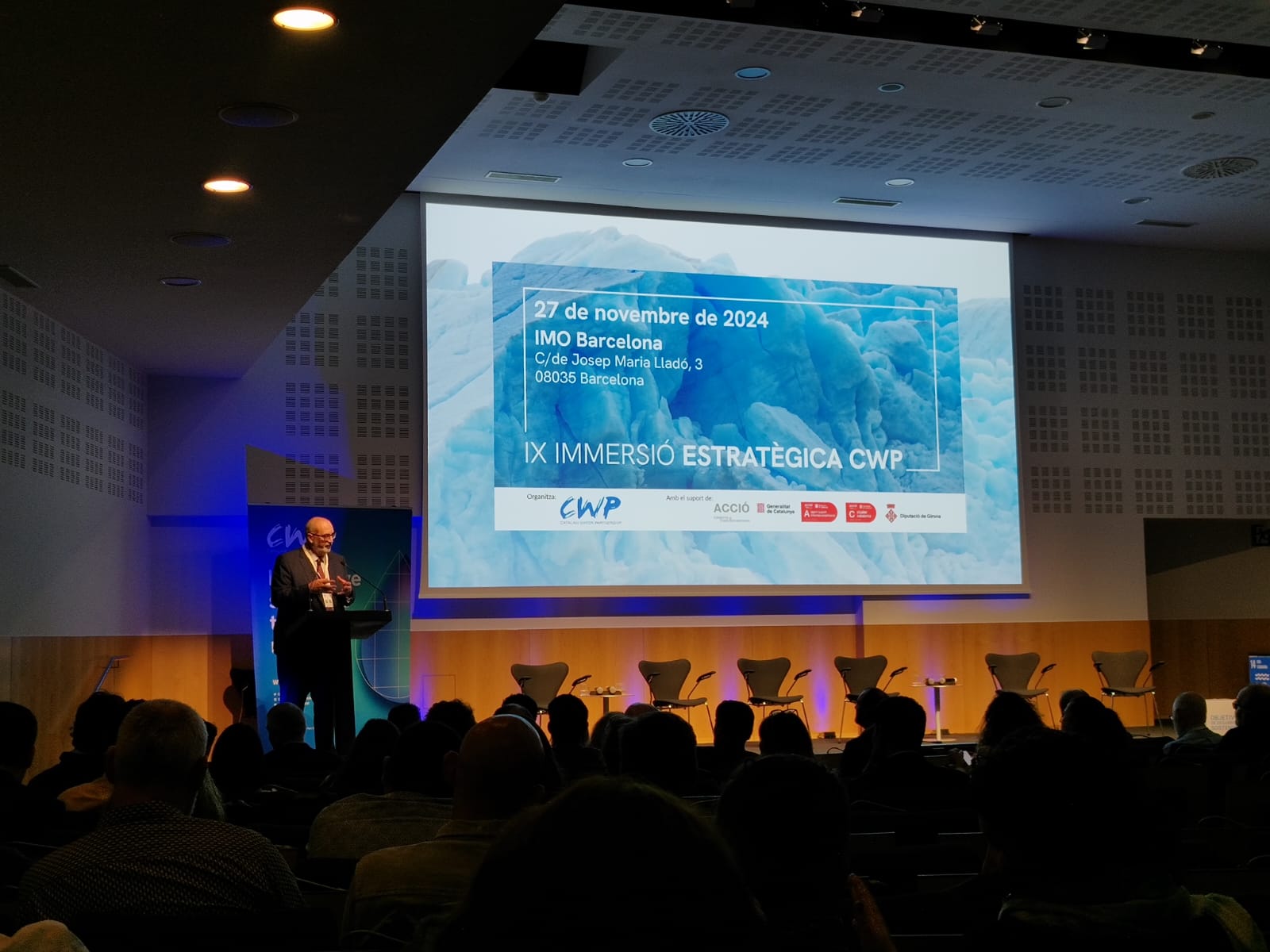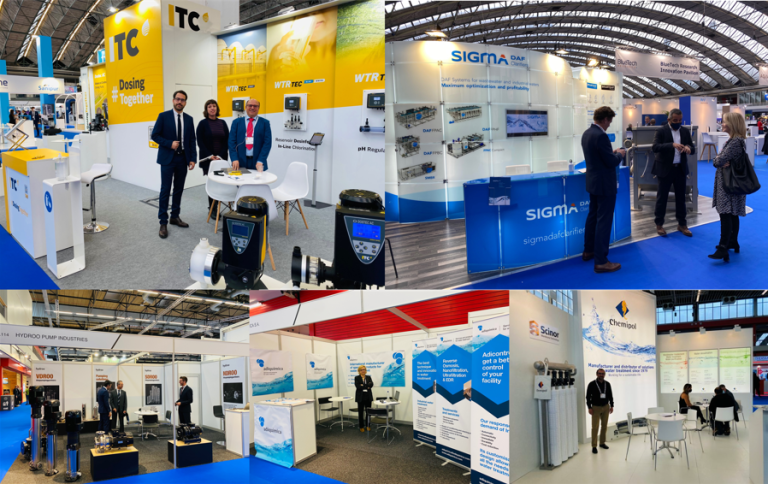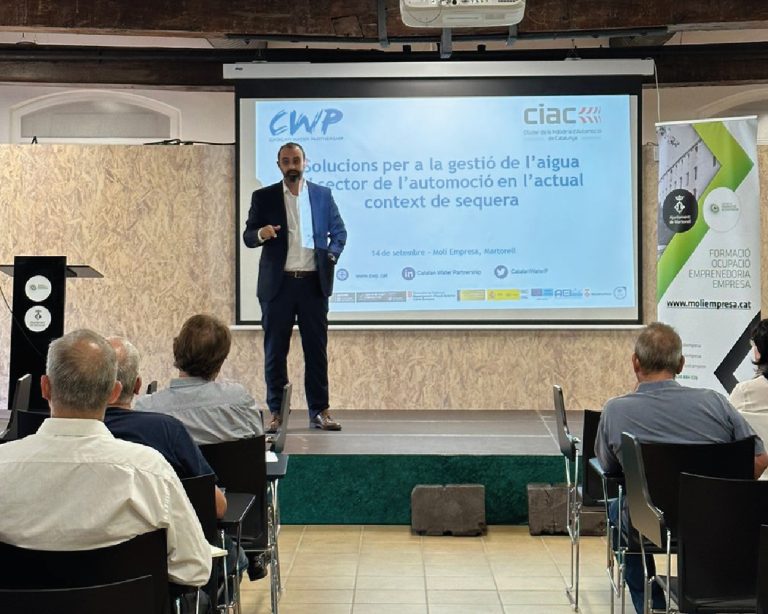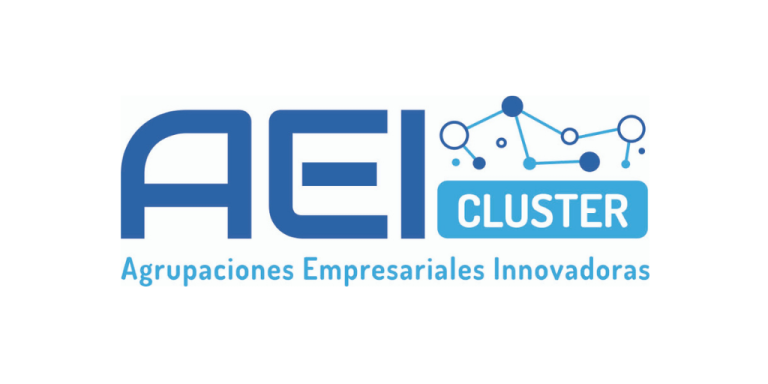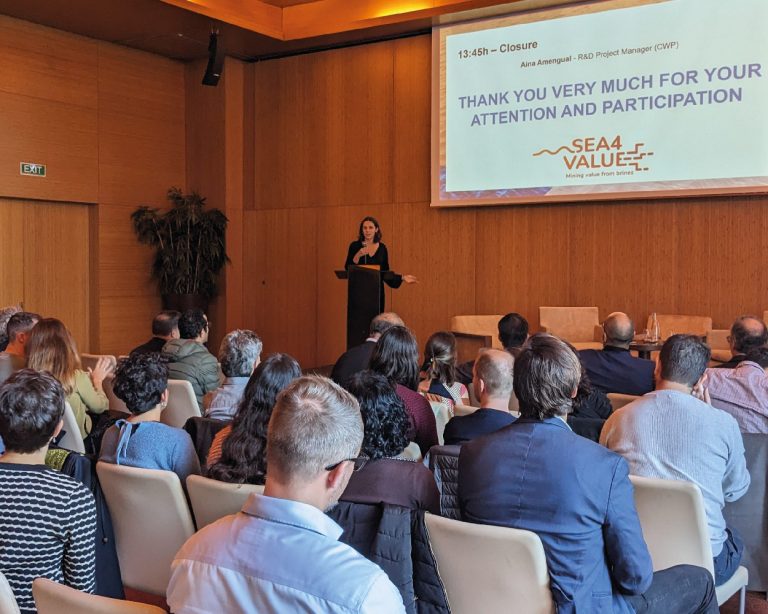The CWP organizes the IX Strategic Immersion event, presenting the strategic update for the sustainable water use sector
- Round 200 representatives from the entire value chain of sustainable water use participated in the event.
- According to the strategic update report, prepared by ACCIÓ in collaboration with the Catalan Water Cluster, the turnover of companies linked to sustainable water use has grown by 74% over the past five years, surpassing €8.7 billion. The sector generates 3% of GDP with 638 companies and over 26,000 jobs.
On November 27, the IX Strategic Immersion event of the Catalan Water Partnership took place. This year’s event was marked by the presentation of the strategic update for the sustainable water use sector and by a context where drought has been a significant topic in most of the cluster’s activities.
The event was opened by the president of the organization, Jordi Cros, who in his welcome speech stated that “the drought in recent years has placed water as a priority on the political agenda and for all economic sectors in the country.” He also highlighted that recent floods “have once again confirmed that climate change makes it essential to take measures to minimize its effects on the water sector. In the coming years, it will be necessary to execute planned infrastructures and continue investing in new solutions targeting the challenges identified in the study.” Next, the director of the Catalan Water Agency, Josep Lluís Armenter, emphasized that “drought must be tackled with effective management measures, promoting savings initiatives, fostering technology, and leveraging the country’s knowledge in water management.” He also underlined the importance of research and innovation, noting that “the contribution of the Catalan Water Cluster is vital as a link between administration and companies to innovate and create business opportunities in various productive sectors while promoting research, development, and innovation projects in the water sector.”
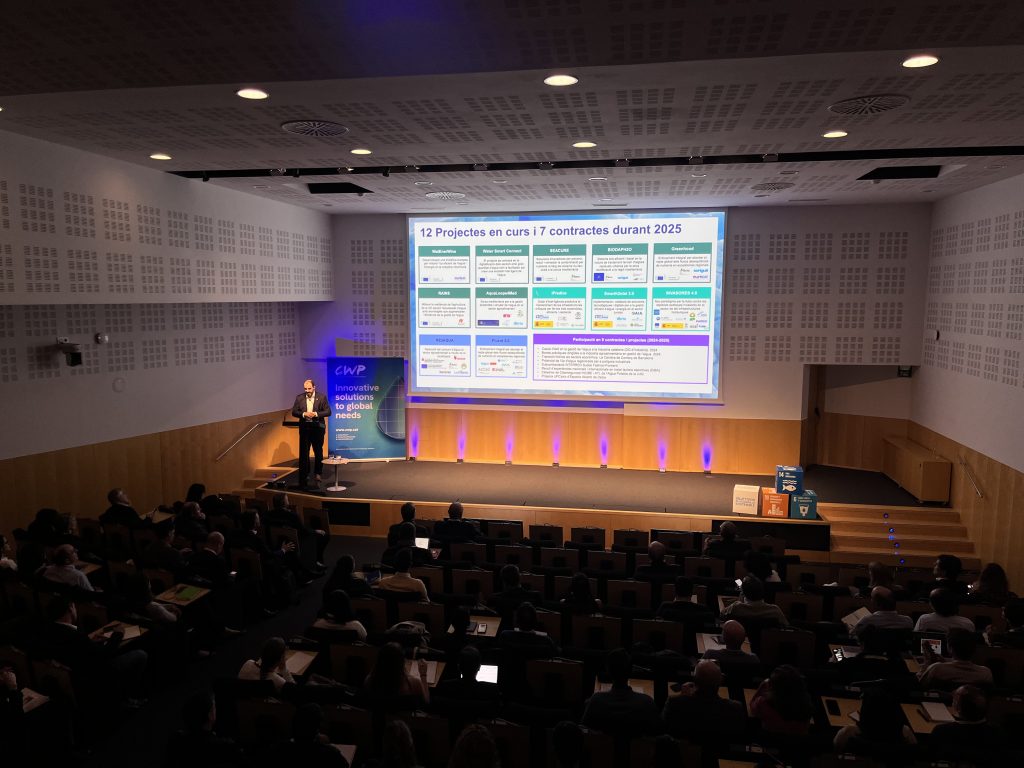
The cluster’s director, Xavier Amores, in his introduction to the event, highlighted 28 R&D and innovation projects carried out in 2024, 10 of which had European funding, 32 new members added this year, and over 17 international activities conducted. He also pointed out various studies of interest to the sector, such as “Success Stories in Water Management in Catalan Industry,” among others. For 2025, planned events include the Water Innovation Day and the session “Between Floods and Droughts,” focused on municipalities. He also highlighted the 27 events organized or co-organized by the cluster and the 52 events where the cluster participated as a speaker, reaching a total of 6,700 attendees.
The keynote speech was delivered by Xavier Ferràs, speaker and associate professor of operations management, innovation, and data science at ESADE. Ferràs addressed “Innovation and Globalization in the Age of AI,” emphasizing that “Artificial Intelligence is a support tool and a competitiveness factor. We are entering a golden age for innovation, driven by technological breakthroughs, which is an opportunity for re-clusterization.”
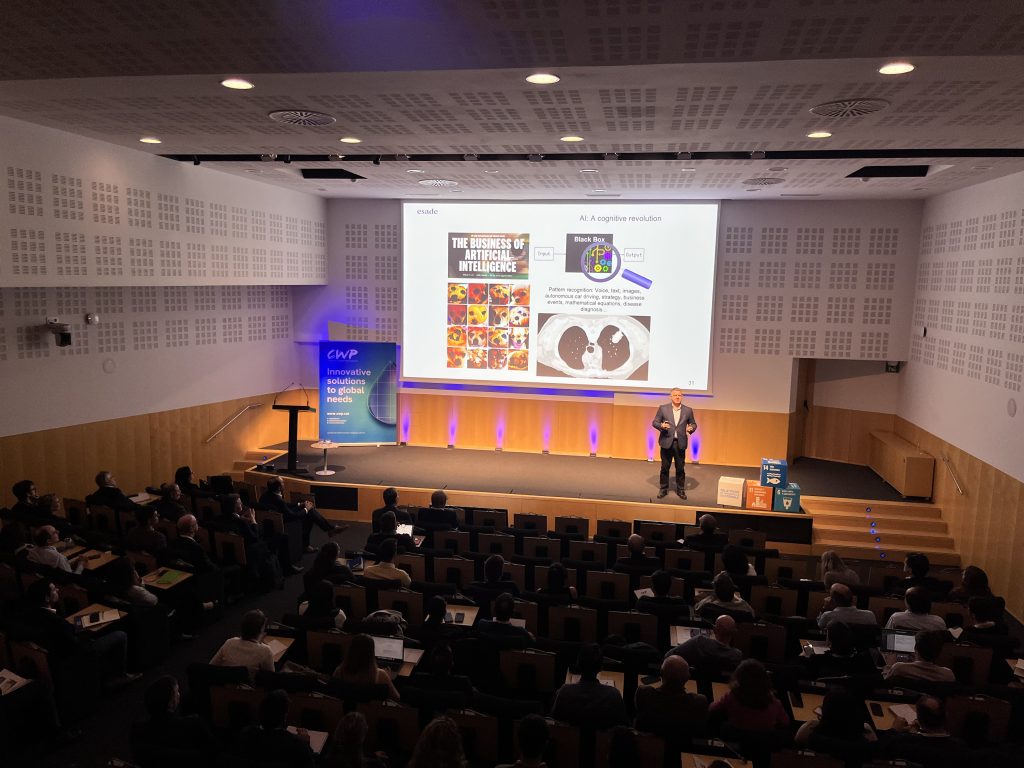
After a break, the strategic update for the sustainable water use sector was presented. The report, conducted by ACCIÓ and the consulting firm Metyis, will serve as the foundation for the cluster’s Strategic Plan 2025-2028. The study highlights several key findings:
- The turnover of Catalan companies linked to sustainable water use has grown by 74% in the last five years, reaching €8.704 billion (3% of GDP). The sector includes 638 companies generating 26,794 jobs.
- The value chain linked to water sustainability comprises companies designing and manufacturing products and solutions for the entire water cycle (51.7%), those offering knowledge-intensive services (29.5%), and operational service companies (18.8%).
- Globally, the report forecasts sustained growth in companies in this sector, with a 14% increase between 2018 and 2023, reaching €880.24 billion. This figure is expected to rise to €1.245 trillion by 2031.
- The report underscores the need to develop efficient technologies for agriculture, renew and update urban networks, and promote the treatment and reuse of water for industrial and service uses, all within a context of climate change and more frequent droughts.
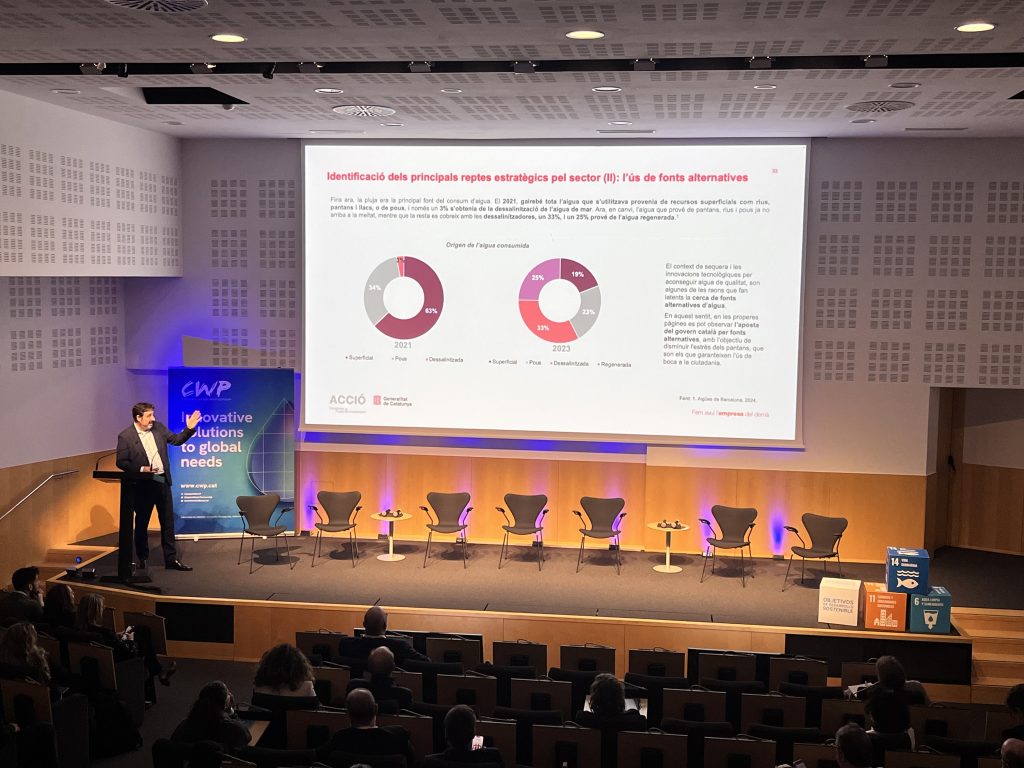
Subsequently, a round table titled “The Future of Sustainable Water Use” was held, linked to the presentation of the report and the development of the CWP Strategic Plan for the 2025-2028 period. The debate included participants from various companies and sector representatives: Andreu Iglesias, Director of Engineering, Operations, and Maintenance at Sorigué; Ester Vilanova, Director of Digital Solutions at Amphos 21; Guillem Solé, Commercial Director at Derypol; Guillem Treserra, Manager at Aigües de Vic; Catalina Balseiro, Director of Environmental Solutions at Agbar; and Xavier Amores, Director of the CWP. The round table highlighted various aspects related to addressing the challenges of climate change adaptation, the significant investments required to tackle droughts or comply with regulatory changes, and the need to recover investments that have been neglected for years despite the sector’s growth. Topics such as digitalization, international opportunities, and shifts in current business models were also discussed. One of the most critical points of the debate was the importance of raising awareness among citizens, public administrations, and water resource users about the value of water, enabling them to prioritize actions that must be implemented over the next decade. Finally, it was emphasized that Catalonia is one of the leading hubs for knowledge, research, and innovative capacity in the water sector, with Catalan technology and companies present worldwide.
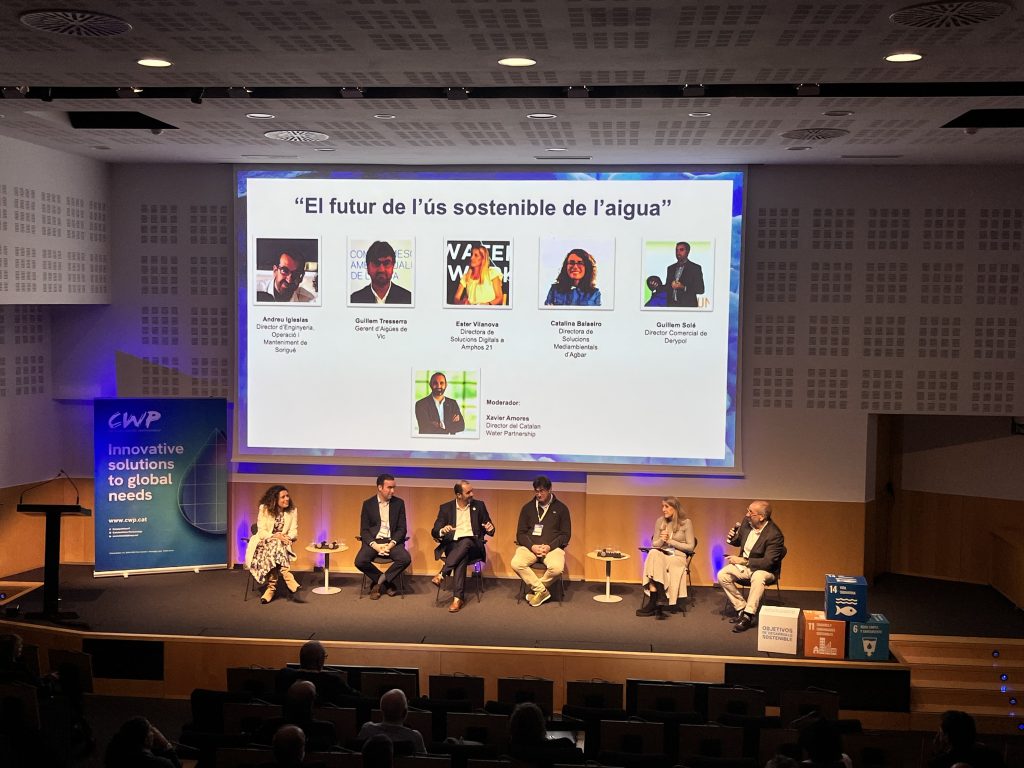
In closing the event, the president, Jordi Cros, stressed that “we cannot neglect investments in R&D and water innovation, as they are what will allow us to tackle future challenges.” He concluded by stating that “the CWP is one of the largest water clusters in the world and includes numerous companies and researchers who can contribute to solving one of the country’s key future challenges: water management.”
